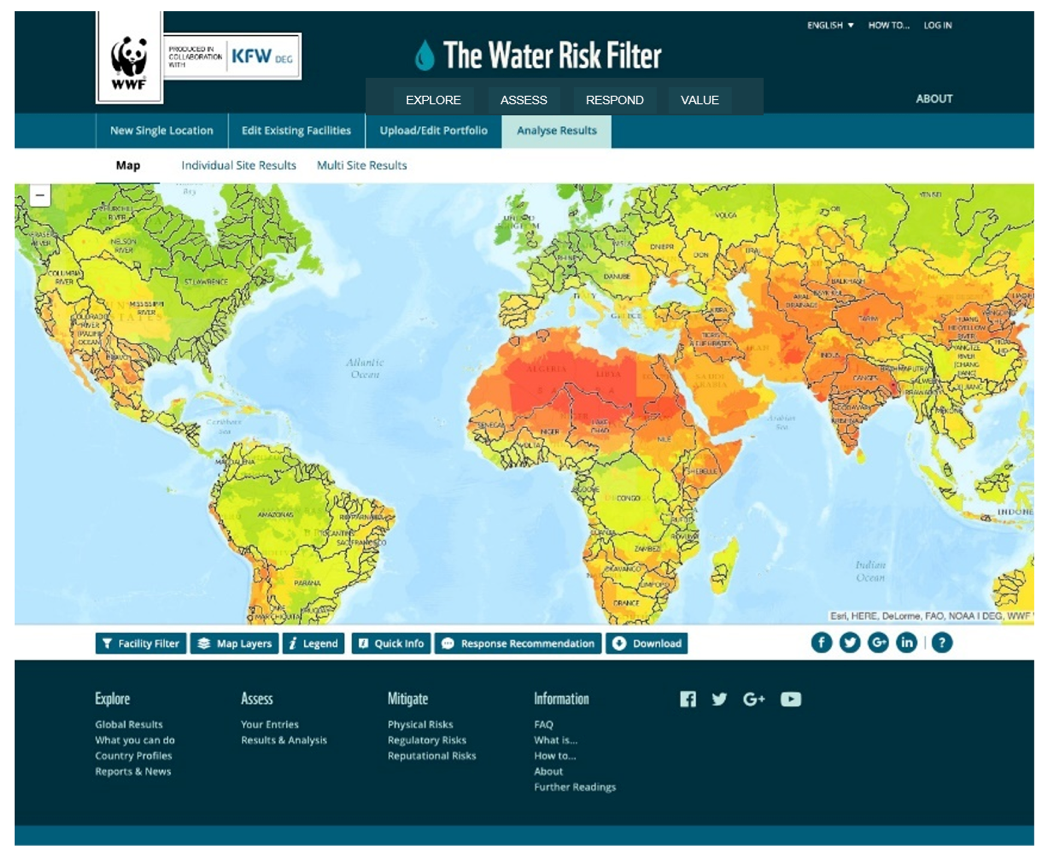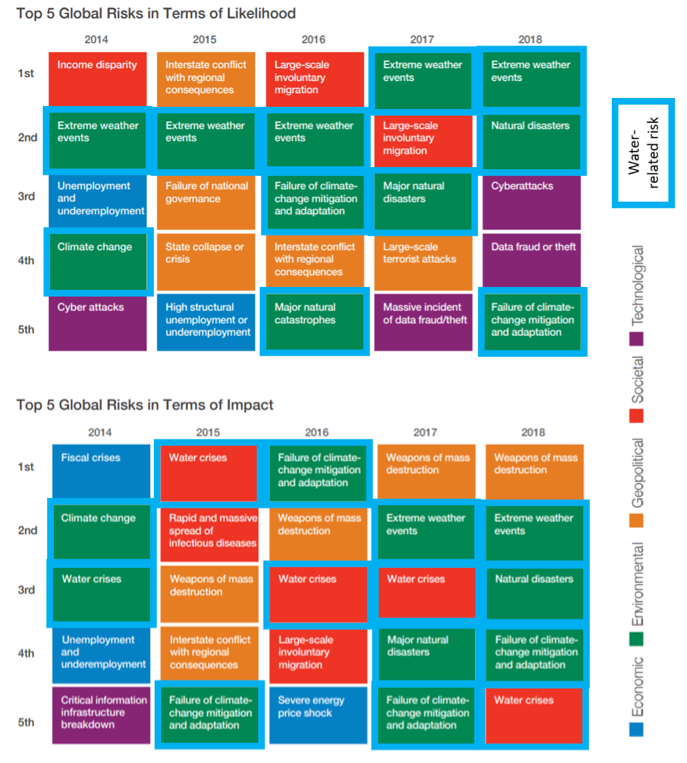How Many More Years Will It Be One of WEF’s Top Global Risks Before the World Starts Valuing Water?
Published on by Alexis Morgan, Water Stewardship Lead at WWF International in Business
Recently, the World Economic Forum (WEF) released its latest iteration of its annual Global Risk Report. Once again, water-related issues were top of mind both in terms of likelihood and severity, especially because — as we must continue to remind people — water (or the lack of water) is how the world is beginning to experience the impacts of climate change.
Granted, as water people, we have our bias when we look at the list, but four of the top five global risks in terms of impact over the next decade can be viewed as manifestations of water risk. “Extreme Weather Events”? Too much water (floods), or too little water (droughts). “Natural Disasters”? Flooding is #1 on that list. “Failure of climate change mitigation and adaptation”? The need to be better prepared to handle water challenges. “Water Crises”? Enough said.

What’s even more striking is the fact that water issues continue, year after year, to be top of mind. Over the past five years, water issues have shown up in directly in 44 percent (11/25) of the top risks by likelihood and indirectly in more than half (e.g., governance failures, human migration that’s often had a water-related driver). Similarly, in terms of impact the numbers are even higher with direct links to 56 percent of the top risks and nearly 70 percent by the time one accounts for food shortages/commodity price variability (often a function of droughts/floods) or the spread of infectious diseases (often driven by insects, which in turn are driven by water availability). Even more concerning is that the trend seems to be increasing. Water has increasingly shown up in the Global Risks report over the past decade and in the last few years has become even more prominent. For example, in both 2017 and 2018, 80% of the top risks in terms of impact have been water-related.
But the most striking fact of all is that despite water being the most prevalent and consistent aspect to the Global Risks report, water continues to be undervalued. The past two years have seen an effort by the High Level Panel on Water to raise the profile on the value of water. As WWF, we raised similar issues back in 2015 with our joint report with IFC. We also continue to flag the critical importance of the value of rivers for everything from economic growth and food security, to culture and the value of ecosystem services. River systems may indeed be the greatest global example of a market failure as both policies and markets have turned them into dumping grounds.
This shared failure to build robust green-grey infrastructure systems that support our rivers, wetlands and aquifers to sustainably provide sufficient water for people and nature cannot continue to be ignored. Basins that are facing stress translate into water risks for companies and investors — as we see through the WEF report. What is important, however, is that we develop context-specific solutions and deploy them at scale. The Water Risk Filter, which will be re-launched in 2018, is one tool that WWF harnesses to not only explore specific basin water risks, but then guide contextual response. It also offers the ability for investors to identify where there is a need for bankable projects that begin to systemically address this perennial water challenge. At WWF, we’re not only flagging the need to value our rivers, we’re scaling solutions by bringing financial capital to the table. From mutual funds to landscape finance projects, WWF is seeking to raise our level of ambition and solve the challenges.
We all need to work ensure that five years from now, when we read the latest WEF Global Risks report that water no longer represents 50 percent of the global risks. We must begin to harness capital markets to scale our response. Water is THE global risk facing our planet. It’s time we starting treating it that way.

Media
Taxonomy
- Water
- Water Risk Tools
- Economics
- Water Risk
- Climate Risk
- Economic development